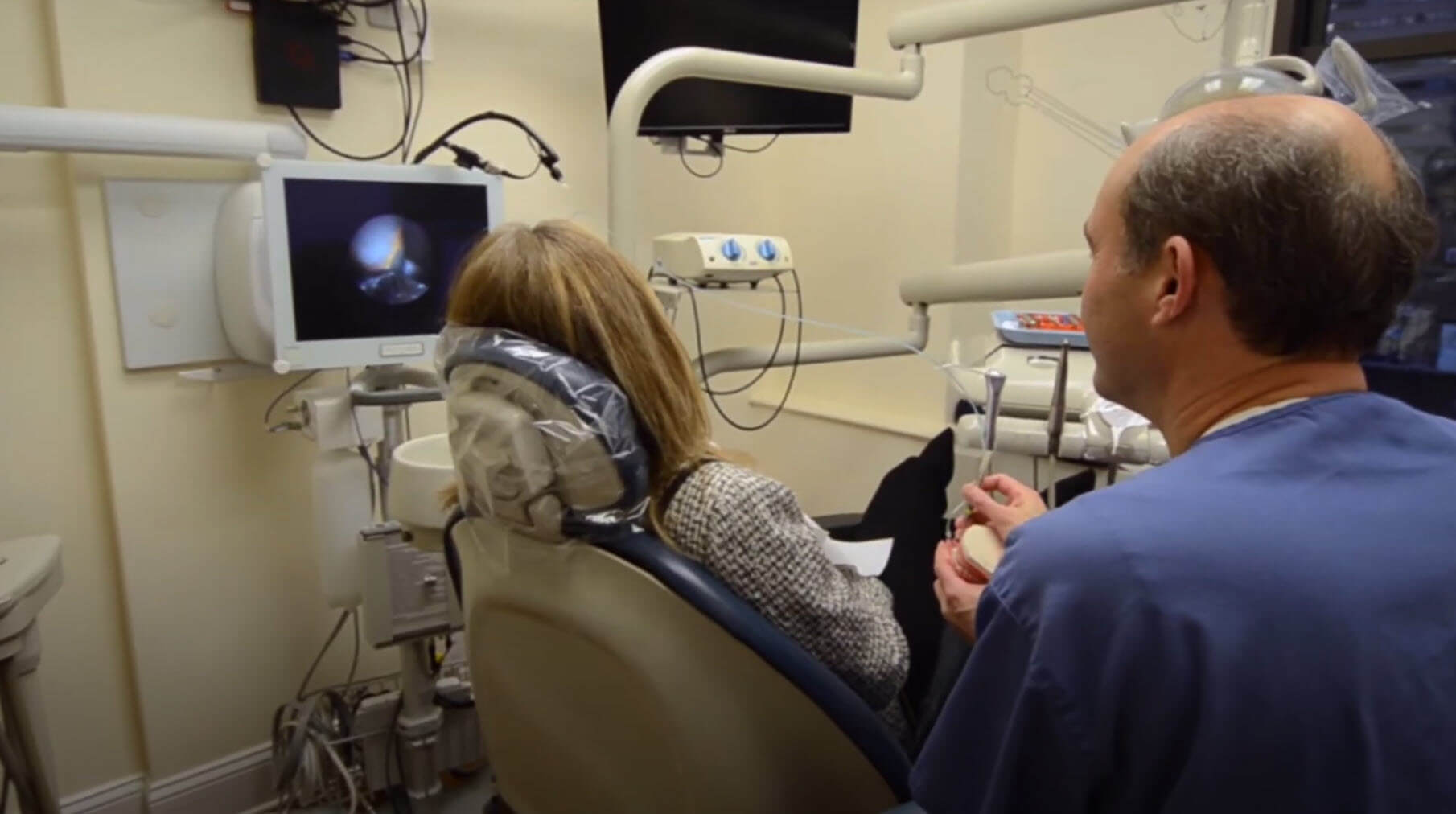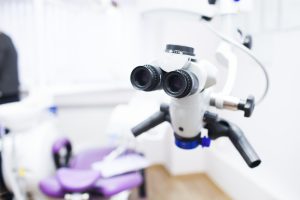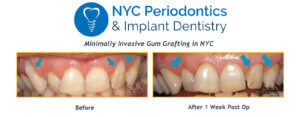As a New York City periodontist, Dr. Kissel understands the importance of maintaining good oral health. However, many people are unaware of the impact that their gum health can have on their overall well-being. That’s why Dr. Kissel would like to take the time to explore the reasons why you may need to book an appointment with an NYC periodontist.
What is a Periodontist?
A periodontist is a dental specialist who focuses on the prevention, diagnosis, and treatment of periodontal disease, also known as gum disease, and dental implant surgery. Periodontists receive additional education and training in the field of periodontics beyond what a general dentist receives.
Why Choose Dr. Kissel as Your NYC Periodontist
Dr. Kissel is also board-certified by the American Board of Periodontology which means he has passed rigorous examinations and attends continuing education courses to stay up-to-date on the latest treatments and technologies. Among the latest techniques and treatments he uses are microsurgery techniques to minimize the invasiveness of periodontal and dental implant treatments.
As a result of his qualifications and continuing education and training, Dr. Kissel is rated as one of the top periodontists in the USA. A Diplomate of the American Board of Periodontology, his Microscopic Surgical Procedures and Advanced Dental Implant Techniques allow for higher visibility and unparalleled precision in periodontal and dental implant procedures. These advancements allow patients pain-free procedures, less invasive methods, faster healing and esthetically superior results.
You must keep in mind, however, that not all periodontists are board-certified nor may be trained to use the latest treatments or techniques. Consequently, you need to do your research before choosing who will be treating your periodontal issues or performing your dental implant surgery.
When Do You Need to See a Periodontist?
Many people believe that their family dentist can treat any oral health issue including periodontal disease or dental implant placements. The truth is that you need to seek the help of qualified specialists who can provide you with effective treatment.
Gum Disease Symptoms

Additionally, if you have a family history of gum disease or have other risk factors such as smoking, diabetes, or a weakened immune system, you may be more susceptible to developing gum disease and should consider scheduling a consultation with a periodontist to assess your oral health.
Dental Implants
Another reason to visit a periodontist is if you are considering dental implants as a treatment option for your missing or badly decaying teeth. Dental implants are a popular and effective solution for restoring the function and appearance of your smile, but they require a healthy foundation of gum tissue and bone to be successful.
A board-certified periodontist like Dr. Kissel can evaluate your oral health and determine if you have sufficient bone density and healthy gums to support dental implants. He can also perform procedures such as bone grafting or gum grafting using microsurgical techniques to enhance the success of implant placement.
Dr. Kissel also uses microsurgery and 3D planning/surgical guides designed by him to help ensure the long-term success of your dental restoration. Additionally, Dr. Kissel waits 2 to 3 months for the integration of implants to bone and verifies the integration with the Implant Stability Quotient (ISQ) test.
Diabetes
Diabetes can increase the risk of developing gum disease, and gum disease can make it more challenging to manage blood sugar levels. According to experts, if you have diabetes, it’s essential to prioritize your gum health and schedule regular appointments with a periodontist.
It’s crucial to ensure that your gums aren’t exacerbating your diabetes. You should seek a periodontal evaluation to determine the impact of gum disease on your blood sugar levels. Studies have indicated that effective periodontal treatment is a critical aspect of diabetes management, particularly for individuals who have gum disease.
What’s more, according to the American Diabetes Association:
If you develop gum disease, your gums become inflamed. And inflammation in the body can lead to higher blood glucose (blood sugar) levels—which can contribute to a higher risk of diabetes.
Thus, visiting your dentist or periodontist can help mitigate the risk of diabetes. Additionally, if you already have diabetes, treating gum disease should be part of your diabetes management plan. Fortunately, Dr. Kissel may be able to offer non-surgical periodontal treatments to help you deal with any gum disease issue.
Pregnancy
Pregnancy can lead to hormonal changes that increase the risk of developing gum disease. If you are pregnant or planning to become pregnant, it’s essential to schedule regular appointments with a periodontist to maintain good gum health.
According to the Centers for Disease Control and Prevention, between 60 to 75 percent of pregnant women are affected by gingivitis, the initial phase of periodontal disease. The gums turn red and swollen due to inflammation and failure to treat gingivitis may result in bone loss and infected gums. This may ultimately lead to loose teeth that may require extraction. In addition, periodontitis has been linked to adverse pregnancy outcomes such as preterm birth and low birth weight.
To put it simply, expectant mothers are more susceptible to developing gingivitis, which can cause significant dental problems if left untreated. Furthermore, periodontitis can have adverse effects on pregnancy, making it critical for pregnant women to prioritize oral hygiene and seek dental treatment if necessary.
Smoking
Smoking is a significant risk factor for gum disease. If you are a smoker, it’s important to schedule regular appointments with a periodontist to monitor your gum health and receive treatment if necessary.
In comparison to non-smokers, if you smoke, you’ll experience more severe gum disease characterized by deeper pockets, greater tooth loss, and a poor response to periodontal treatment. Additionally, you’ll have a higher likelihood of periodontal disease recurring.
Smoking also conceals one of the most noticeable indications of gum disease, which is bleeding. As a result, you may not realize that they have periodontal problems.
As a smoker, you are more susceptible to gum disease because of various factors, including a reduction in gingival blood flow, impaired white cell function, impaired wound healing, and an increase in the production of inflammatory substances called cytokines that promote the breakdown of gum tissue.
How Can a Periodontist Help?
A New York City periodontist like Dr. Kissel can provide a range of treatments to help prevent, diagnose, and treat gum disease and dental implant surgery. Some of the treatments offered by Dr. Kissel at his Manhattan periodontal office include:
Scaling and Root Planing Using a Perioscope
Scaling and root planing are deep cleaning procedures that remove plaque and tartar from beneath the gumline using a powerful dental microscope that can be inserted into the gum pockets to provide a better view of the affected area. The perioscope can display a magnified image (24-48x) on a video screen, allowing Dr. Kissel to clearly see any tartar you may have directly on the root of the affected tooth in large detail.
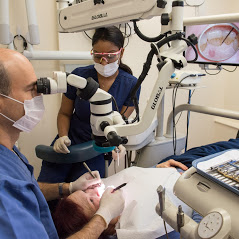
Gum Grafting
Gum grafting can repair receding gums and prevent further damage to the teeth and gums. What’s more, using microsurgery techniques, Dr. Kissel is able to provide an easier gum grafting surgery for his patients, which makes it faster for them to heal.
Here are 10 reasons why you may need gum grafting:
- Receding gum lines due to periodontal disease (gum disease).
- Having gums that are swollen, tender to the touch, and bleed.
- The roots of your teeth are visible.
- A yellow edge where your teeth meet your gums
- You keep getting root cavities.
- Noticing the development of deep pockets of pus between your teeth.
- Your teeth have become sensitive to cold/hot food and drinks.
- You have spaces between your teeth when you didn’t have them before.
- Having teeth that are shifting or moving.
- Bad breath that just won’t go away no matter what you try.
Bone Grafting
If your dentist suggested that you may need extra periodontal procedures before you can consider dental implants, then you may need a procedure referred to as bone grafting. This periodontal procedure rebuilds lost jawbone tissue in order to help you have successful and long-lasting dental implants.
LANAP® Laser Treatment to Treat Gum Disease
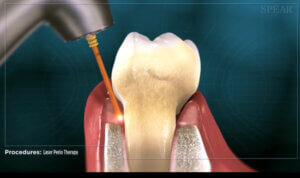
The laser operates at the perfect wavelength to remove diseased tissue and bacteria but remains invisible to healthy tissue, root surface, teeth, and bone. The principle is simple. We remove what is bad, and leave what is good. This results in minimal to no recession, less pain, less bleeding, less downtime, and faster healing. LANAP basically gives the body a chance to heal itself. It’s Dr. Kissel’s first choice for the treatment of gum disease, especially when considering the next best choice is more invasive surgery. With LANAP, many patients also end up saving teeth that were previously deemed hopeless.
Dental implants
Dental implants are the premier tooth replacement option since they can improve the function and appearance of the teeth and gums. Today, if you search for “dental implants near me” you are likely to find a dozen “dental implant specialists” near you. However, the success rate of dental implants can vary depending on the experience and implant technique used by your dental implant specialist. The quality of your implant system is also important in determining the success of your implants.
For over 25 years, Dr. Kissel has been placing the highest-quality dental implants using microsurgery techniques and 3D planning/surgical guides designed by him to replace missing teeth for his patients at his Madison Avenue periodontal office. He is able to offer his patients a number of dental implant options available to suit almost every degree of teeth loss. For example, Dr. Kissel can offer you:
A Single-Visit Procedure for Dental Implants
The SMILE Technique is a single-visit procedure that allows you to leave Dr. Kissel’s periodontal office with a natural-looking replacement tooth secured to an implant. During the procedure, the tooth is surgically removed with the aid of a surgical microscope resulting in a minimally invasive procedure, and a dental implant is placed immediately. The SMILE Technique is known for producing the most lifelike, natural-looking results possible.
All-On-4® Dental Implants
If you need an entire mouthful of teeth replaced with dental implants, then the solution is All on 4 dental implants. Dr. Kissel can give you an entire mouthful of dental implants while using only 4 titanium rods per upper or lower bridge.
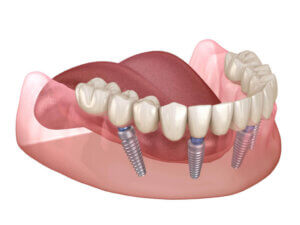
The Bottom Line
Gum health is a crucial aspect of overall oral health, and seeing a periodontist can help prevent, diagnose, and treat gum disease. If you are experiencing symptoms of gum disease, have a family history of gum disease, have diabetes, are pregnant, or are a smoker, it’s essential to schedule an appointment with a periodontist to maintain good gum health.
Similarly, if you are considering replacing missing or decaying teeth, you need to turn to qualified and experienced dental implant specialists who will use the latest implant techniques and the highest quality implant material.
Consult with Dr. Kissel
Reclaiming your beautiful smile and the full functionality of your teeth starts by booking your periodontal or dental implant consultation with Dr. Kissel. Learn more about his training and experience in periodontal disease treatments and dental implant surgery using advanced microsurgical techniques and 3D planning/surgical guides. He can help you by using the most effective minimally invasive treatments. Call his Manhattan periodontal office between E 52nd St. and E 53rd St for an appointment at (212) 702-9088 or book online.
